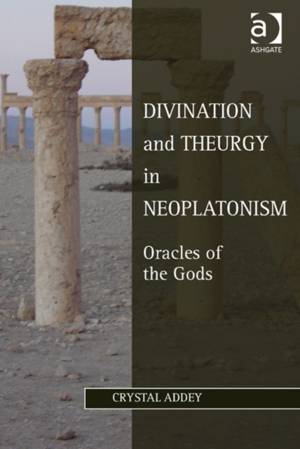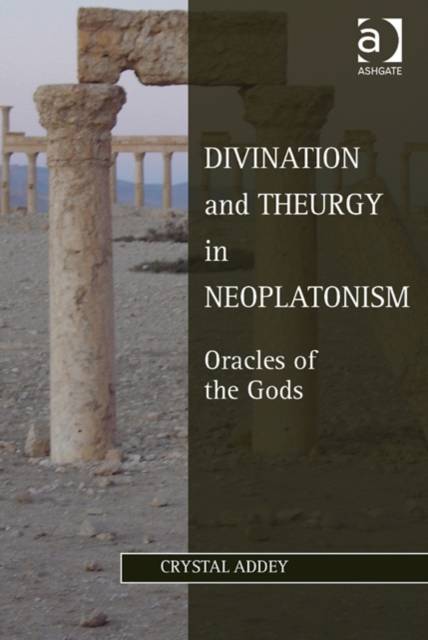
- Afhalen na 1 uur in een winkel met voorraad
- Gratis thuislevering in België vanaf € 30
- Ruim aanbod met 7 miljoen producten
- Afhalen na 1 uur in een winkel met voorraad
- Gratis thuislevering in België vanaf € 30
- Ruim aanbod met 7 miljoen producten
Zoeken
€ 195,95
+ 391 punten
Uitvoering
Omschrijving
Why did ancient philosophers consult oracles, write about them, and consider them to be an important part of philosophical thought and practice? This book explores the extensive links between oracles and philosophy in Late Antiquity, particularly focusing on the roles of oracles and other forms of divination in third and fourth century CE Neoplatonism. Examining some of the most significant debates between pagan philosophers and Christian intellectuals on the nature of oracles as a central yet contested element of religious tradition, Addey focuses particularly on Porphyry's Philosophy from Oracles and Iamblichus' De Mysteriis - two works which deal extensively with oracles and other forms of divination. This book argues for the significance of divination within Neoplatonism and offers a substantial reassessment of oracles and philosophical works and their relationship to one another. With a broad interdisciplinary approach, encompassing Classics, Ancient Philosophy, Theology, Religious Studies and Ancient History, Addey draws on recent anthropological and religious studies research which has challenged and re-evaluated the relationship between rationality and ritual.
Specificaties
Betrokkenen
- Auteur(s):
- Uitgeverij:
Inhoud
- Aantal bladzijden:
- 352
- Taal:
- Engels
- Reeks:
Eigenschappen
- Productcode (EAN):
- 9781409451525
- Verschijningsdatum:
- 17/09/2014
- Uitvoering:
- Hardcover
- Formaat:
- Genaaid
- Afmetingen:
- 156 mm x 233 mm
- Gewicht:
- 815 g

Alleen bij Standaard Boekhandel
+ 391 punten op je klantenkaart van Standaard Boekhandel
Beoordelingen
We publiceren alleen reviews die voldoen aan de voorwaarden voor reviews. Bekijk onze voorwaarden voor reviews.











